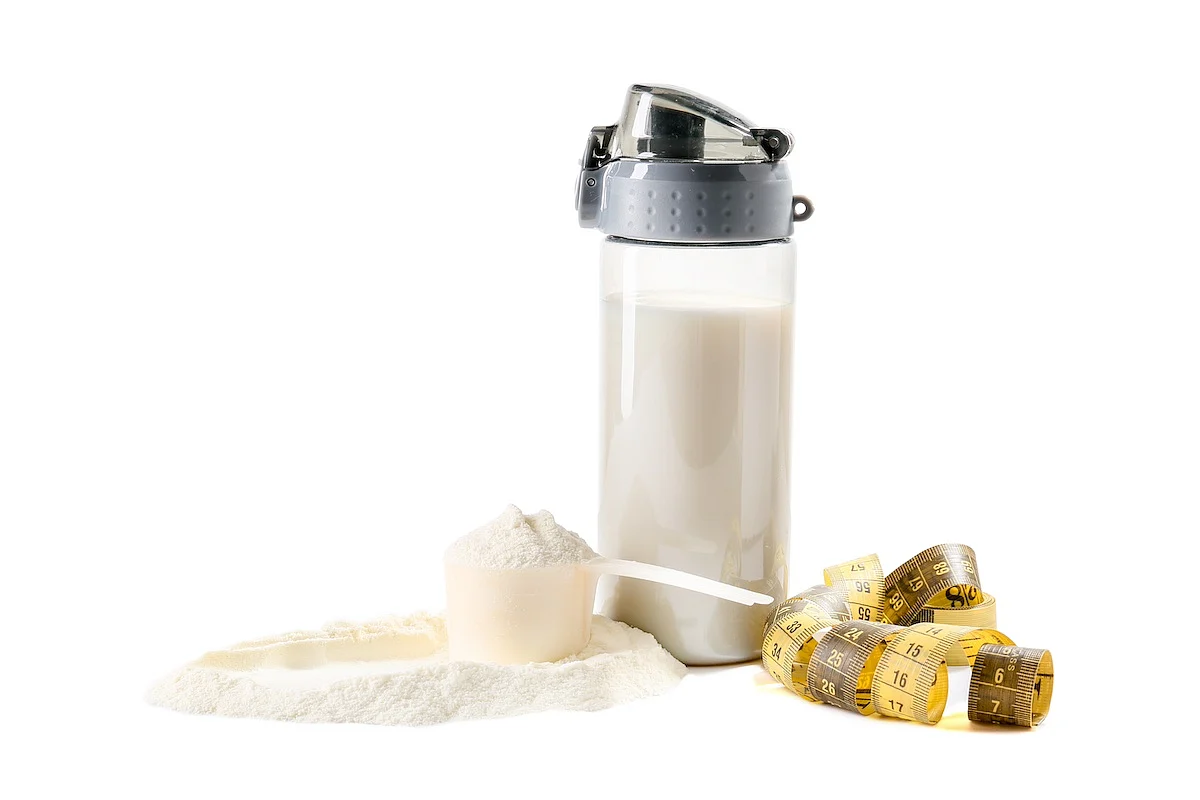Muscle-Building Supplements Linked to Body Image Disorder in Young Adults
THURSDAY, Feb. 20, 2025 -- Protein shakes and pre-workout mixes are popular among gym-goers, but they might signal a deeper issue for some young adults.
A study published Feb. 19 in the journal PLOS Mental Health linked use of multiple muscle-building supplements to muscle dysmorphia, a body image disorder focused on obsessing over muscle size and leanness.
“The use of 6 different dietary supplements intended for muscle building was associated with greater symptoms of muscle dysmorphia,” lead author Kyle Ganson, assistant professor in the Factor-Inwentash Faculty of Social Work at the University of Toronto, told CNN via email.
His team analyzed data from 2,731 people between 16 and 30 years of age. Eight in 10 had used at least one muscle-building supplement in the past year.
Protein bars were the most common supplement used (63.4%) , followed by whey protein shakes or powders (63.1%), and creatine monohydrate (25.5%), the study found.
Researchers found that as the number of supplements used rose, so did signs of muscle dysmorphia, such as excessive exercise, strict dieting and emotional distress about body image.
Muscle dysmorphia is a disorder in which someone becomes fixated on appearing more muscular or lean, even if they already have a well-developed physique.
“People who experience muscle dysmorphia often have significant challenges in their social lives, and can experience severe emotional distress,” Ganson told CNN. “Not to mention, these individuals may go to extreme lengths to achieve their body ideal, such as using anabolic steroids.”
In a 2022 study, 36% of young males reported using protein powders and shakes, while 10% said they used other muscle-building substances such as creatine and growth hormones. In addition, 2.2% of young adult males reported using steroids.
And, some people “dry scoop” before a workout or consume protein powder dry without mixing in water, Dr. Jason Nagata, associate professor of pediatrics at the University of California, San Francisco who co-authored the new study, told CNN.
“Dry scooping is particularly dangerous practice because it provides a high and potent dose of a product that is meant to be diluted in water,” he said. “Dry scooping provides a pure and highly concentrated burst of a product that can have toxic effects.”
Social media also plays a key role in shaping unrealistic body ideals, especially for teens who are undergoing rapid changes and comparing themselves with others during puberty.
Posts about muscle-building supplements and anabolic steroids overwhelmingly show positive muscle-building effects, which make them attractive to teens, Nagata pointed out.
Young men are more likely than young women to have public social media profiles and show off muscles online, leading to body comparisons.
“Men’s bodies are on display more than ever on social media, especially through influencer accounts," Nagata told CNN. "The idealized bodies that influencers post may be heavily filtered or the best of hundreds of photos.”
Treating muscle dysmorphia often involves cognitive behavioral therapy (CBT) to reframe negative thoughts about body image. Medication such as antidepressants or anxiety treatments can also be helpful.
Support from family, coaches and healthcare providers is also key to spot early warning signs, researchers agreed.
"One important step is to challenge the information and ideals coming out of social media, especially for teens who are undergoing rapid changes and making frequent comparisons with others during puberty," Nagata concluded.
Sources
- CNN, media report, Feb. 19, 2025
- PLOS Mental Health, Feb. 19, 2025
Disclaimer: Statistical data in medical articles provide general trends and do not pertain to individuals. Individual factors can vary greatly. Always seek personalized medical advice for individual healthcare decisions.
© 2025 HealthDay. All rights reserved.
Read this next
Gen X Older Adults Show High Rates of Ultra-Processed Food Addiction
TUESDAY, Sept. 30, 2025 — New research suggests that older adults, particularly Generation X women, have high rates of addiction to ultra-processed foods, such as fast food...
Millions of Corn Dogs Recalled Over Wooden Shards
TUESDAY, Sept. 30, 2025 — The U.S. Department of Agriculture’s Food Safety and Inspection Service (FSIS) has announced a recall of about 58 million pounds of frozen...
Mouse Study Offers Cautionary Tale About The Keto Diet
SUNDAY, Sept. 28, 2025 — It sounds counterintuitive: Eat more fat and lose more weight. But it’s the underpinning of a keto diet — a controversial eating...
More news resources
- FDA Medwatch Drug Alerts
- Daily MedNews
- News for Health Professionals
- New Drug Approvals
- New Drug Applications
- Drug Shortages
- Clinical Trial Results
- Generic Drug Approvals
Subscribe to our newsletter
Whatever your topic of interest, subscribe to our newsletters to get the best of Drugs.com in your inbox.


